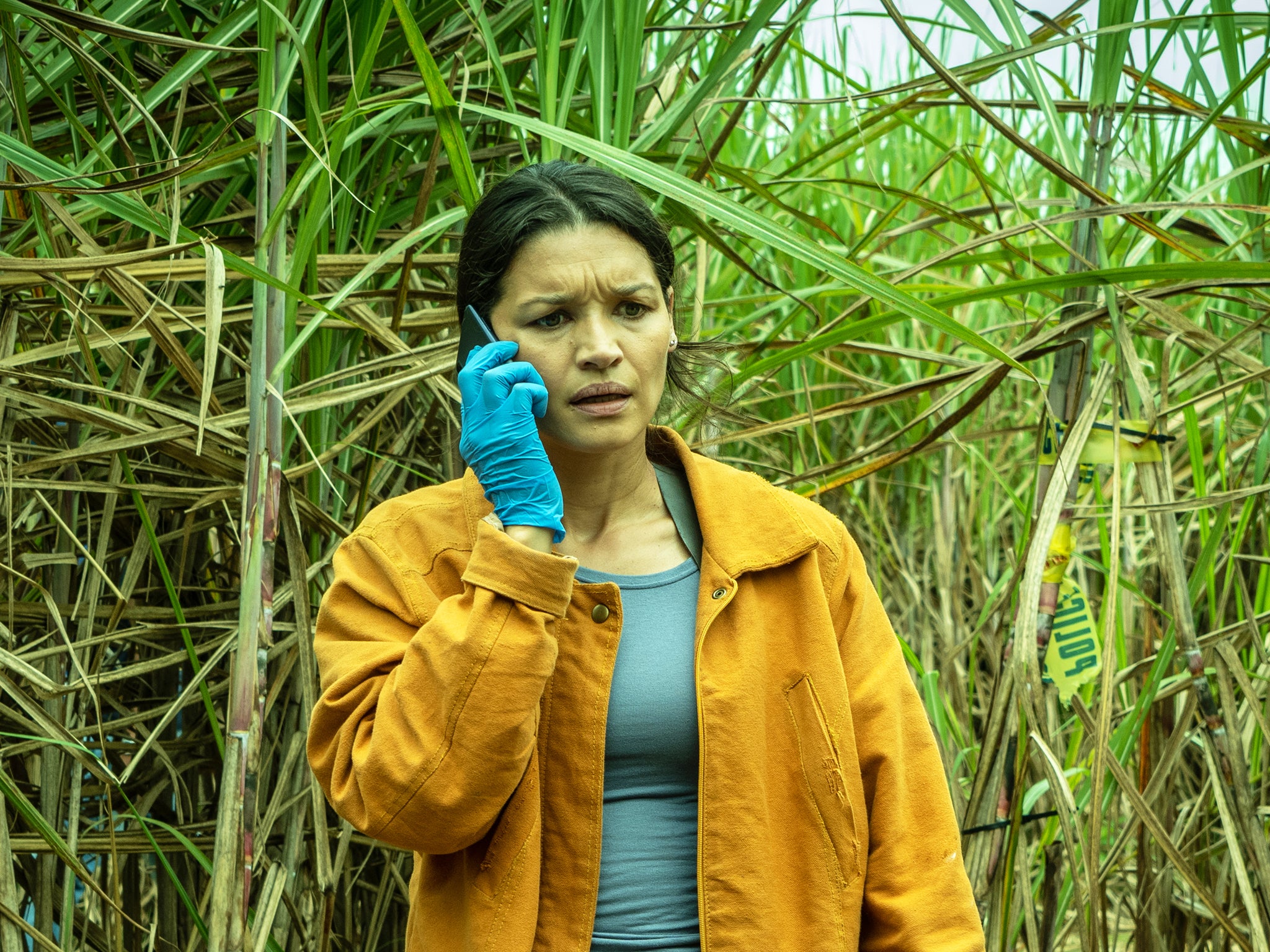The Cane Field Killings review: So gruesome you may struggle to keep your dinner down
South African mystery series ropes in voodoo, dismemberment and an imprisoned paedophile with shades of Jimmy Savile and Hannibal Lecter

Your support helps us to tell the story
From reproductive rights to climate change to Big Tech, The Independent is on the ground when the story is developing. Whether it's investigating the financials of Elon Musk's pro-Trump PAC or producing our latest documentary, 'The A Word', which shines a light on the American women fighting for reproductive rights, we know how important it is to parse out the facts from the messaging.
At such a critical moment in US history, we need reporters on the ground. Your donation allows us to keep sending journalists to speak to both sides of the story.
The Independent is trusted by Americans across the entire political spectrum. And unlike many other quality news outlets, we choose not to lock Americans out of our reporting and analysis with paywalls. We believe quality journalism should be available to everyone, paid for by those who can afford it.
Your support makes all the difference.You need strong nerves to get through Channel 4’s latest crime series, The Cane Field Killings, and I rather fear its sheer gruesomeness may impede its success. Imported from South Africa, a nation where life and politics is perhaps more charged, it has aspects to its story that are almost too disturbing. And that’s just the psychologically damaged and morally compromised cops. It’s when you get to the scene of the murders that you’ll find it difficult to keep your dinner down. The show features the most grotesque cadavers: strangled, decaying, distended faces, as if crying out in unimaginable agonies. You can almost hear the actors on set – “OK, make-up and prosthetics teams, that’s enough. Can we just shoot the scene now?”. You will think I’ll easily forget the scene where a stray dog is playing fetch with a decomposed human arm.
The central figure in the carnage is Reyka Gama (Kim Engelbrecht), a personally wayward but brilliant thirtysomething psychological profiler, the best in South Africa. She’s called upon to make sense of a series of bodies found dumped in the vast sugar plantations of KwaZulu-Natal, on land owned by a white farmer. The victims are all young girls. Reyka, who can discern social class and cause of death from the scantest of human remains, is convinced it’s the work of a serial killer. However, the killing fields are shortly to be sold to a local Zulu chief, and the complacent and corrupt local police would prefer not to disturb the trade, and to pretend it’s all either witchcraft or gangsters. There are long discussions about whether an arm that has been torn from a torso rather than hacked off with a machete is consistent with the traditions of witchcraft; and quite raw references to race are never far away. The chief declares: “I’m not Mandela. I want what’s mine”. Reyka’s job is to get through all this obstruction and stop the killer.
Engelbrecht’s heroic Reyka is intelligent, determined and well equipped to understand the criminal mind, but for the saddest and strangest of reasons. A neglectful mother, she drinks too much and is on tense terms with her own mum. We learn, through distressing flashbacks, that she was herself abducted at the age of 12 and imprisoned on a remote estate. Her captor, Angus Speelman (Iain Glen), is described in a court scene as a “charismatic narcissist with a perversion” – that perversion being paedophilia. We see him cuddle up to the young Reyka with the words “they don’t understand our love”, and you fear the worst. She escapes, but, perhaps, looking for the inevitable “closure”, Reyka continues to visit Speelman, now in prison. Played by Iain Glen, he’s a horrific, manipulative character, a combination of Jimmy Savile and Hannibal Lecter – “I can tell you things, Reyka. Things you’ve forgotten”. Beyond creepy.
The whole show freaks you out, frankly, and the only benefit of the occasionally jarring chopping between Reyka’s tortured past and still-tortured present is that the viewer gets distracted from overlong exposure to unbearable sufferings. Beautifully filmed in stunning verdant landscapes and endless skies, The Cane Field Killings is a drama that sears itself into your consciousness. It does without the occasional element of bleak ironic humour to break the tensions, of the kind you get in British or American crime series. It’s remorseless and unceasing, just like a serial killer in fact.
Join our commenting forum
Join thought-provoking conversations, follow other Independent readers and see their replies
Comments